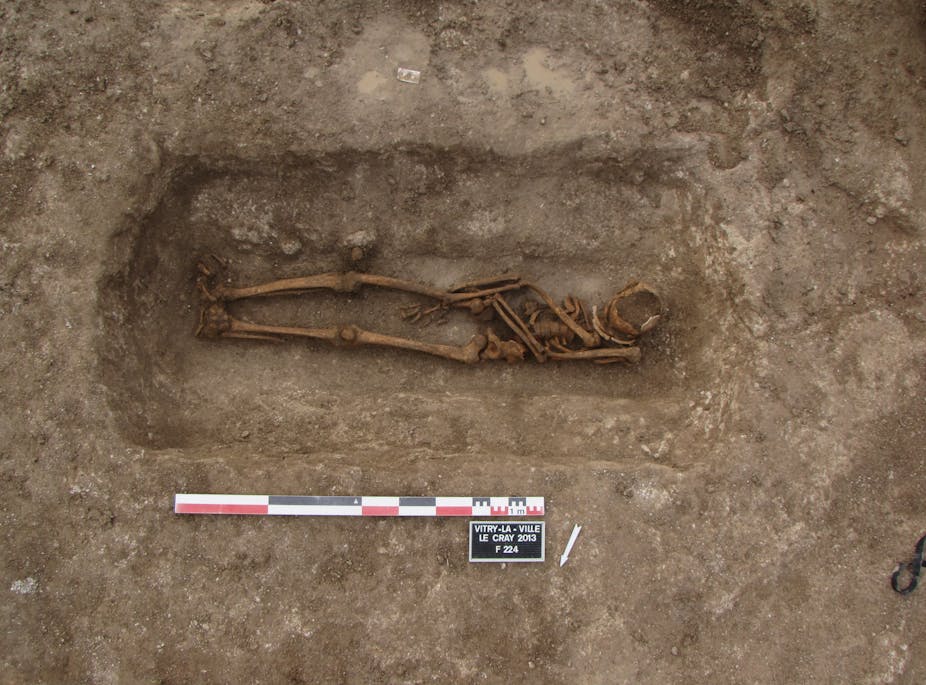
Grave from France where the individual was moved around before he fully decomposed. Éveha-Études et valorisations archéologiques/G Grange, Author provided
From the collapse of Roman power to the spread of Christianity, most of what we know about the lives of people across Europe comes from traces of their deaths. This is because written sources are limited, and in many areas archaeologists have only found a few farmsteads and villages. But thousands of grave fields have been excavated, adding up to tens of thousands of burials.
Buried along with the human remains, archaeologists find traces of costumes and often possessions, including knives, swords, shields, spears and ornate brooches of bronze and silver. There are glass beads strung as necklaces, as well as glass and ceramic vessels. From time to time they even find wooden boxes, buckets, chairs and beds.
Yet since the investigations of these cemeteries began in the 19th century, archaeologists have recognised that they have not always been the first to re-enter the tombs. At least a few graves in most cemeteries are found in a disturbed state, their contents jumbled and valuables missing. Sometimes this happened before the buried bodies were fully decomposed. In some areas, whole cemeteries are found in this state.
Read the rest of this article...